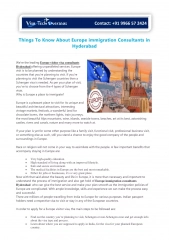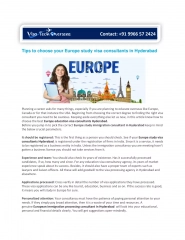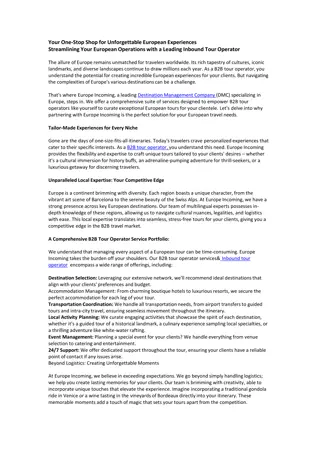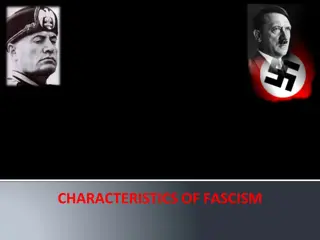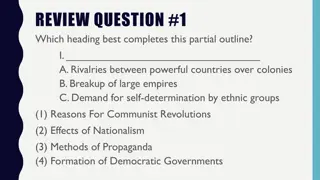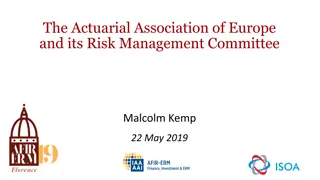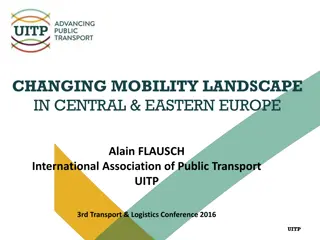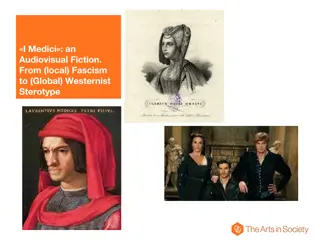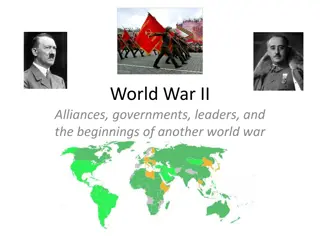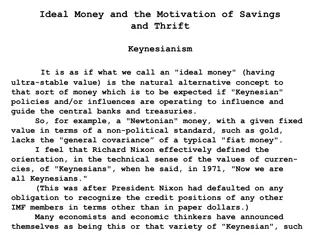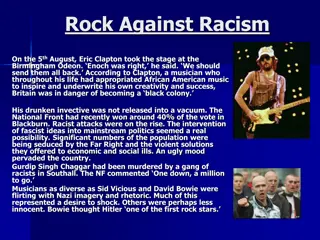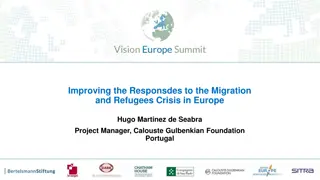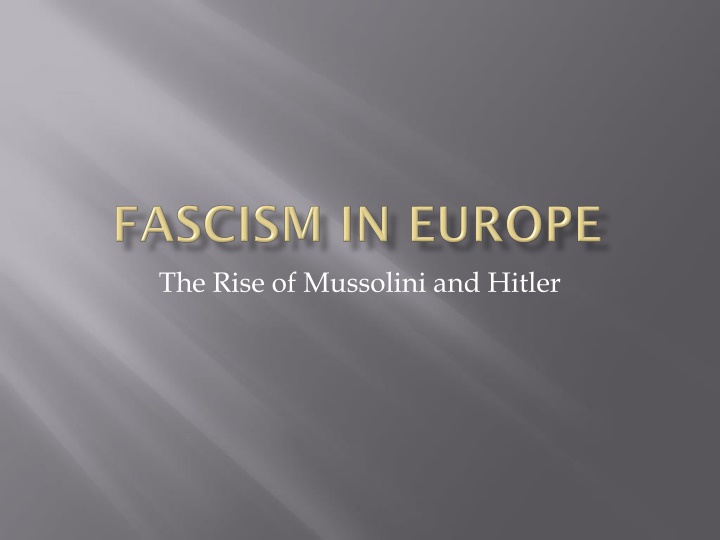
The Rise of Fascism in Italy: Mussolini's Path to Power
In the aftermath of World War I and facing economic turmoil, Italy turned to Fascism as a solution. Benito Mussolini capitalized on the nation's unrest, appealing to various groups and ultimately seizing power to establish a dictatorship. Explore the factors that led to the rise of Fascism in Italy and its impact on Italian society.
Download Presentation

Please find below an Image/Link to download the presentation.
The content on the website is provided AS IS for your information and personal use only. It may not be sold, licensed, or shared on other websites without obtaining consent from the author. If you encounter any issues during the download, it is possible that the publisher has removed the file from their server.
You are allowed to download the files provided on this website for personal or commercial use, subject to the condition that they are used lawfully. All files are the property of their respective owners.
The content on the website is provided AS IS for your information and personal use only. It may not be sold, licensed, or shared on other websites without obtaining consent from the author.
E N D
Presentation Transcript
After the war, Italy faced food shortages, rising prices, unemployment, and business failures due to the global depression. Angered by the government s inaction, peasants seized lands from large estates and workers waged violent strikes. Socialist and Communist political parties were gaining popularity in Italy. Face with these problems, many Italians turned to an ideology called Fascism.
Fascists stressed nationalism and placed the interests of the state above those of individuals. To strengthen the nation, fascists said, power must rest with a single strong leader and a small group of devoted party members. They claimed that political disagreements divided and weakened a nation.
Fascism was in a part a reaction against the Communist victory in Russia. Fascists charged that Communism stirred up class conflict and made people more loyal to their class than to their country. Benito Mussolini was the founder of the fascist party in Italy. Mussolini drew support from a wide range of Italians. Business owners, government officials, and land owners wanted a strong government that would end strikes and curb working-class political power. Fascism also spread to Italy s middle class, including university students, shopkeepers, and professional people.
Italys soldiers and war veterans were also attracted to fascism. Mussolini spoke of bring back the glory and military strength of ancient Rome. Mussolini s dream of a new Italian empire appealed to nationalists and army officers. The people like the military-style organization of the party: fascists wore black-shirted uniforms, carried weapons, and paraded in the streets.
By early 1922 the Fascist Party had more than 300,000 members and controlled several major Italian cities. In October 1922, Mussolini made his bid for power. Speaking at a giant rally of his followers, he said, Either they will give us the government or we shall take it by descending on Rome. A few days later, thousands of Fascists began a march on Rome. When key officials in the government, army and the police sided with the Fascists, King Victor Emmanuel III made Mussolini head of the Italian government.
Mussolini saw democracy as a weak and ineffective system. He created a dictatorship in which the Fascist Party would have complete control. He cracked down on other political parties, started a secret police force to spy on possible enemies, and had many of his opponents thrown into jail. The government also took over the press.
Mussolinis program to strengthen Italy included social and economic changes. To insure a steady supply of soldiers, Mussolini made it hard for Italians to leave the country. He taxed single men, limited the number of jobs open to women, and encouraged Italian families to have more children. Fascists wanted Italy to be self-sufficient. Farmers were urged to use modern methods. The government attempted to limit the power of the workers and banned labor unions. It also controlled wages, prices and working hours.
Mussolini was called Il Duce which meant the leader. The people had to accept his ideas without question. Government propaganda told the Italian people that the fascists had done away with crime, poverty, and labor problems. Mussolini was not able to create a totalitarian state in Italy. The Catholic church and the army held on to much of their old influence.

![❤Book⚡[PDF]✔ Spaceplane HERMES: Europe's Dream of Independent Manned Spaceflight](/thumb/21517/book-pdf-spaceplane-hermes-europe-s-dream-of-independent-manned-spaceflight.jpg)

